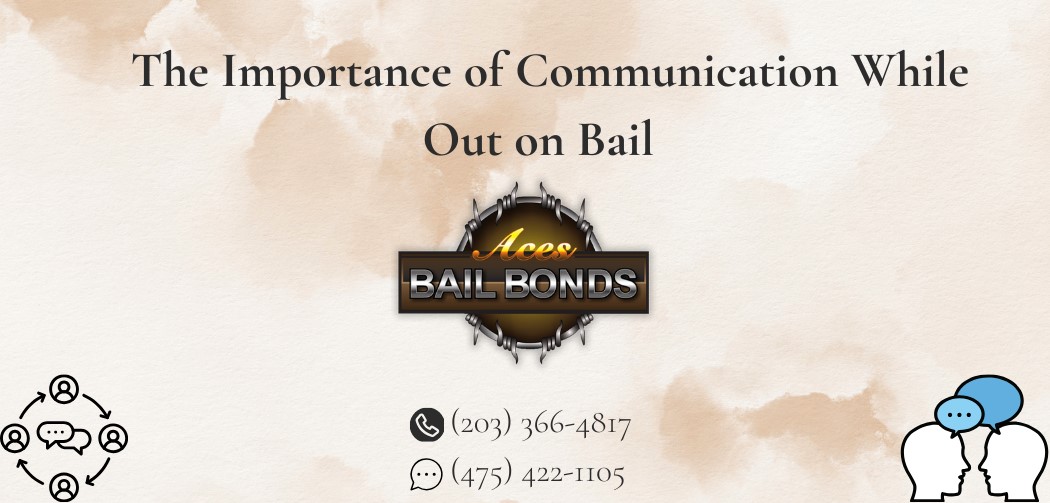The Importance of Communication While Out on Bail
Being released on bail in Connecticut is an opportunity to prepare your legal defense while continuing daily life. However, this freedom comes with responsibilities. One of the most important factors in staying compliant is effective communication while out on bail. From staying in touch with your bail bondsman, to working closely with your attorney, to understanding court requirements, communication often determines whether you remain in good standing or face additional consequences.
In this guide, Aces Bail Bonds explains why communication is essential while out on bail, how to manage it effectively, and what happens if you fail to stay in contact.
1. Understanding the Connecticut Bail Process
Before discussing communication, it’s crucial to understand how Connecticut bail bonds work.
-
The Defendant: The person charged with a crime who posts bail or secures a bond to be released.
-
The Bail Bondsman: A licensed Connecticut bail bond agent who posts the bond in exchange for a fee.
-
The Court System: The legal body that sets bail, monitors compliance, and enforces bail conditions.
Once released, defendants must follow all court-ordered conditions, stay in contact with their bail bondsman, and attend every hearing. Clear communication with these parties is the foundation of compliance.
2. Why Communication Is Critical While Out on Bail
a. Staying Informed About Court Dates
Missing a court appearance can result in bail revocation and re-arrest. Regular communication with your lawyer and bail bondsman ensures you never miss critical dates.
b. Compliance With Bail Conditions
Courts may impose restrictions such as travel limits, counseling, or no-contact orders. By staying in contact with your bail bondsman and attorney, you’ll know exactly what’s required and avoid unintentional violations.
c. Preventing Misunderstandings
The legal system is complex. Clear, consistent communication prevents misinterpretations that could appear as non-compliance.
d. Managing Emergencies
Life continues while you’re out on bail. Medical emergencies, job changes, or family issues must be communicated immediately to your Connecticut bail bondsman or attorney to prevent violations.
3. How to Communicate Effectively While on Bail
Keep Regular Contact With Your Bail Bondsman
Your bail bonds agent has a financial stake in your case. Updating them on changes in address, work, or emergencies builds trust and ensures compliance.
Communicate Openly With Your Legal Team
Be transparent with your attorney. Whether it’s a new job, travel plans, or living arrangements, your lawyer can only defend you effectively if they have accurate information.
Use Technology to Stay Organized
Set phone reminders, use calendar apps, and store all bail-related documents in one place. This prevents missed court dates or check-ins.
Report Changes Immediately
Notify your attorney and bondsman of changes in phone number, address, or employment. Any gaps in communication may raise red flags.
4. Consequences of Poor Communication
Failing to stay in contact while out on bail can result in:
-
Revocation of Bail: Non-compliance may lead to re-arrest.
-
Loss of Trust With Bail Bondsman: Missed check-ins can cause your agent to withdraw support.
-
Additional Charges: Missing court dates may lead to a separate “failure to appear” charge.
-
Damage to Your Defense: Lack of communication leaves your attorney unprepared.
At Aces Bail Bonds, we emphasize open communication to keep clients compliant and supported throughout the bail process.
5. Practical Tips for Staying in Touch
-
Create a Communication Plan: Agree with your lawyer and bondsman on how often and how to check in.
-
Use Technology Wisely: Calendar alerts and apps make it easier to track obligations.
-
Document Everything: Keep a record of conversations with your attorney, bondsman, and court.
Final Thoughts
Communication while out on bail in Connecticut is not optional—it’s the key to protecting your freedom and building a strong legal defense. Staying in touch with your bail bondsman, attorney, and the court system ensures compliance, reduces stress, and prevents costly mistakes.
At Aces Bail Bonds, we pride ourselves on providing 24/7 bail bond services in Connecticut and guiding our clients through every step of the process. If you or a loved one needs help, trust our experienced team to deliver compassionate, reliable, and transparent support.
📞 Contact Aces Bail Bonds today for immediate assistance from a trusted Connecticut bail bond company.

